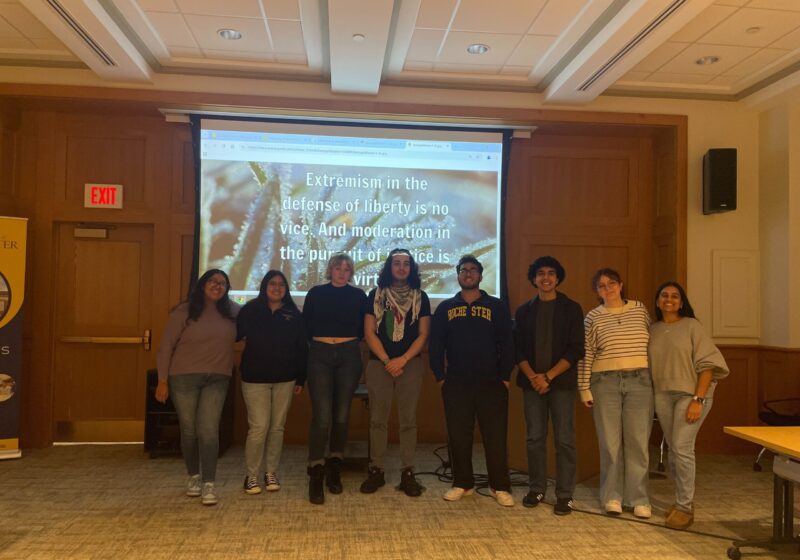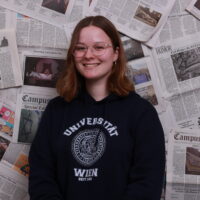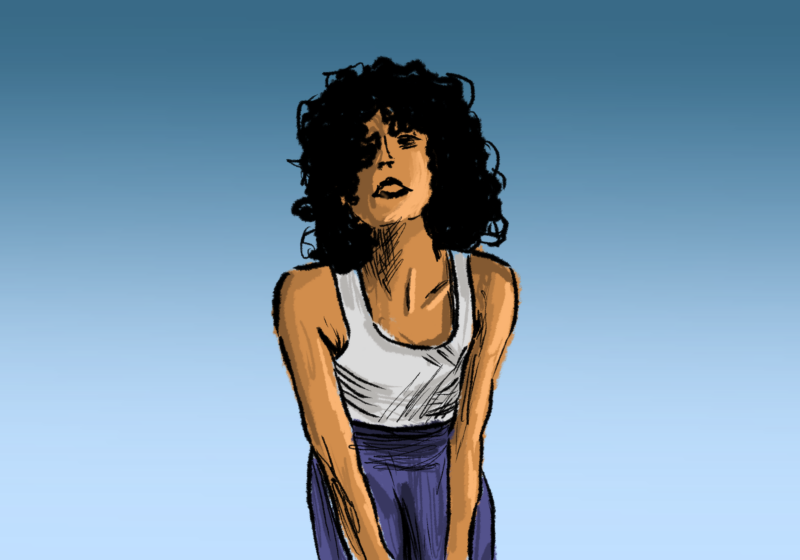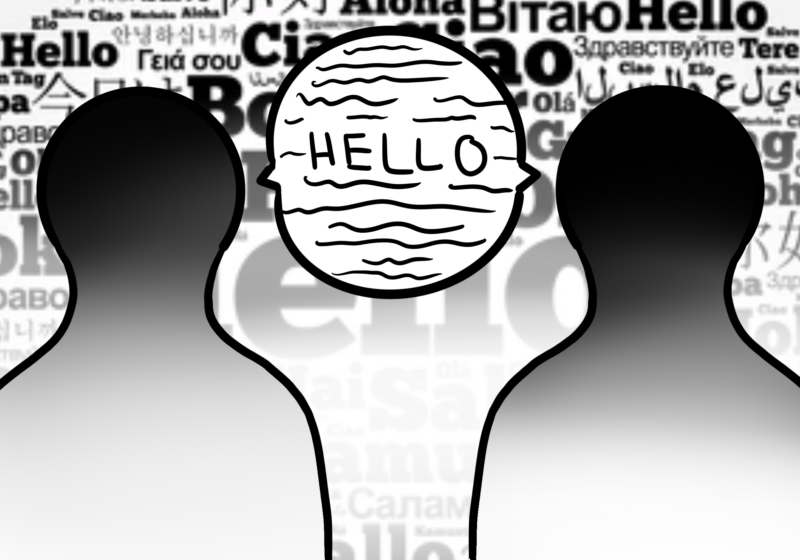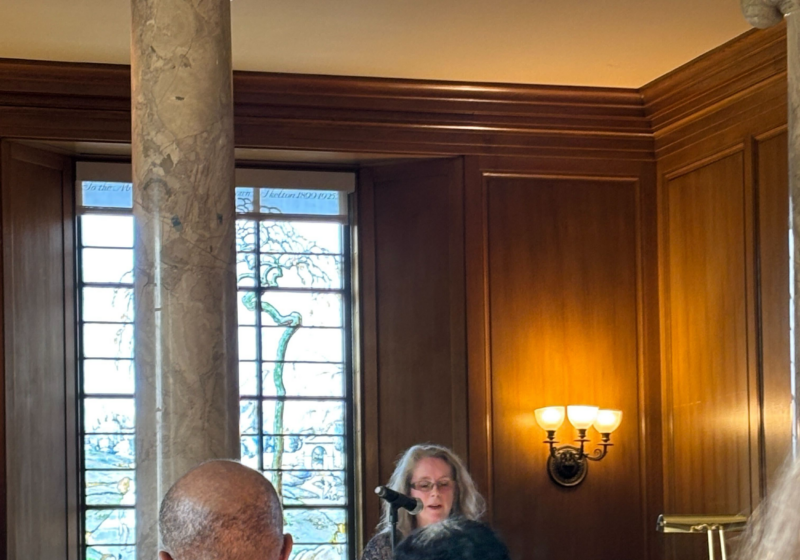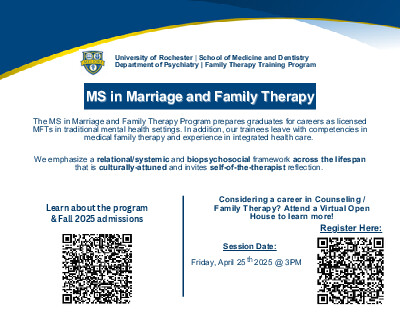ROCTalks collaborated with student members of UR’s Students for Justice in Palestine on Wednesday, Nov. 20 to hold a discussion centered around the quote: “Extremism in the defense of liberty is no vice. And moderation in the pursuit of justice is no virtue” from Saladin Ambar’s book “Malcolm X at Oxford Union: Racial Politics in a Global Era.”
Students discussed the definitions of terrorism and extremism, and what those words meant to them. The discussion began with each student being given two minutes to speak, until about halfway through where it turned into an open floor discussion.
A ROCTalks officer was the student in charge of the meeting, opening the discussion by first stating her views on the use of extremism as a term.
“I feel like in the modern world, especially in the West, extremism is super demonized as a word and as a concept, and it is also misinterpreted in a bunch of ways,” a student said.
An international student from Armenia, she drew from her personal experience of the Armenian-Azerbaijan border conflict when discussing the line between acceptable and unacceptable acts of extremism for a cause with regard to civilians.
“Considering how many Armenian prisoners of war and political prisoners we have in Azerbaijan, it is a significant issue for us currently, especially considering all the torture to them. I know how civilians can be used as a political tool. I don’t necessarily condone it or whatever, but also I have seen how you can exchange a group of people for another group of people,” she said. “And I feel like sometimes you have to do what you have to do to bring your relatives, your friends, back to where they are supposed to be.”
Senior Erin Hess spoke about the role of extremism in fighting genocide.
“So, I fully agree with the statement on the board that extremism is a fully valid way to combat what is incredibly extreme and incredibly terrifying, and what would be terrorism, which is literally a genocide. There is no reason to have any stability with somebody who does not have any problem contributing to a genocide in any way,” Hess said. “Ridding yourself of an oppressor, or like, ending a genocide are often what is considered extreme. So the outcome of justice should never be labeled as extreme by anyone.”
First-year Ali Salem questioned whether advocating for the general good is extremism.
“I think in advocating for peace and in advocating for justice, we aren’t even necessarily being extreme. That is the middle, and that is where everybody should be. It’s kind of counterintuitive in the sense to call ourselves extremists or advocate that extremism is good,” Salem said. “So, it’s less of a question of is extremism okay if it’s in the name of something good like peace and justice. Is it really even extremist to advocate for what is equality and what is generally good?”
Senior Keertana Terala, president of ROCTalks, used Mahatma Gandhi as an example to discuss the effectiveness of pacifism.
“It was this idea of how Gandhi wasn’t the one that caused the British to back off, it was more like a culmination of different things. And Gandhi was the one that was able to send that message to the British, and he kind of acted as this voice and this message agent. And his notion of non-violence is not what led to independence,” Terala said. “I think a lot of people get that mixed up, and they think that non-violence and that positive peace is what can create resolution. Which is never true […] And why I think that extremism, or more just self-defense, is necessary.”
Junior Miller Gentry-Sharp contemplated the concept of extremism and its relation to societal comfort.
“Where people sort of define extremism as something that challenges the comfort of normative society,” Gentry-Sharp said. “I think in many cases, that question of comfort sort of completely obscures the boundary between what is just and what is unjust. Where for one, living in an unjust society, for one living a life of supremacy, any sort of justice would appear to be uncomfortable. And I think that discomfort often is falsely labeled as sort of a feeling of having been affected by violence.”
Junior Mowaz Alvi spoke about the importance of community and remembering that changes are made by groups of people, not just individuals that are faces of the cause.
“It makes me really think about how social change is deterministic,” Alvi said. “There will be mistakes made by people. There will be things that organizations might not do right or wrong, might not do right. But we as a collective, our community, are the ones that are changing our environment.”
Junior Karam Aldahleh stressed the importance of solving the underlying problems that extremism forms from and drew on his perspective as a Palestinian.
“Truthfully, if you want to settle things like these things that we consider terrorism or these things that we consider deplorable acts that are being committed out of revolution, I think the main goal, the number one thing that should come to people’s mind, is resolving the underlying matter,” Aldahleh said. “The fact that we are going through an apartheid right now, that we are going through a genocide. It is out of my power otherwise to do anything as a Palestinian. It is out of the power of all Palestinians to do anything about that.”
